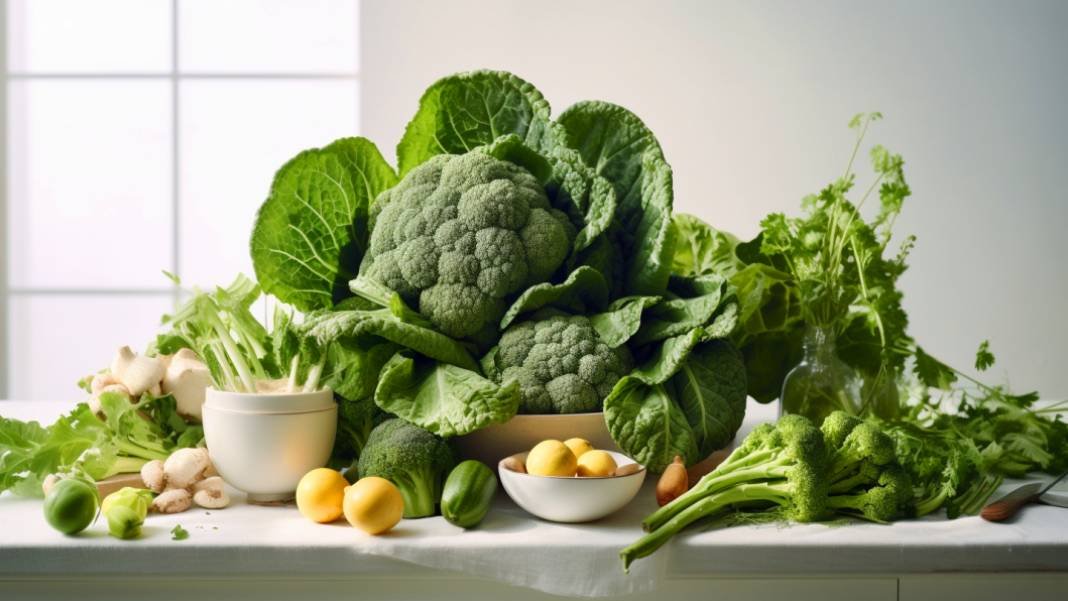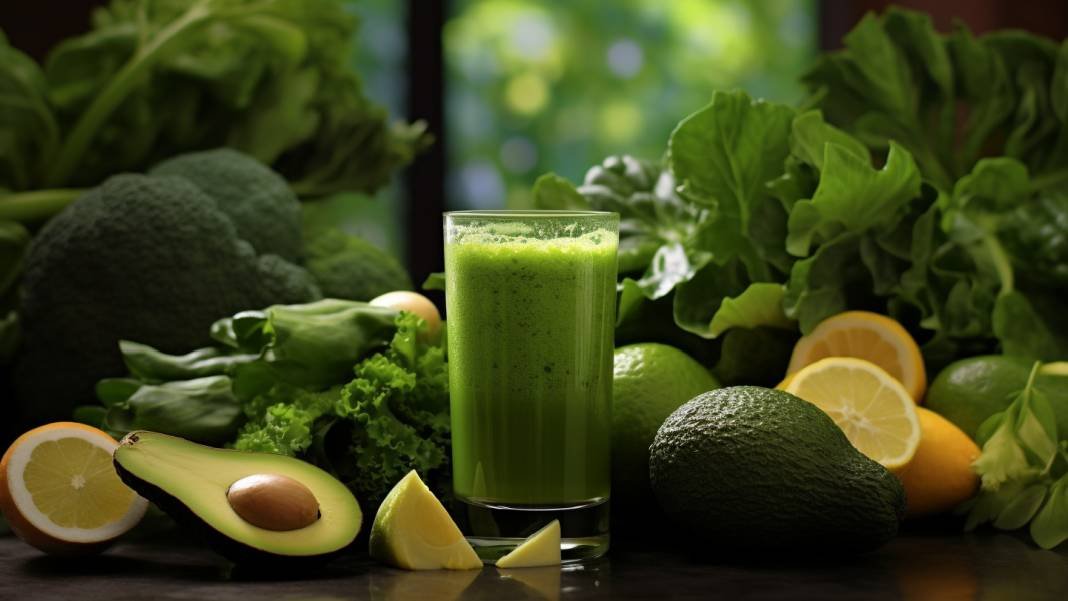Colon Cleanse Diet: How to Cleanse Your Colon Naturally with Food
I never realized how much I took my gut health for granted until it turned against me. What started as occasional discomfort and bloating soon spiraled into a daily battle with digestive issues that seemed to have no end. In this article, I’ll share how I went from being bed-bound many days a week for years to getting back to living a productive and fulfilling life by modifying my diet.
A colon cleanse diet can help maintain good transit times of waste, to promote a “clean” and healthy colon.
I’ve improved my gut health by making dietary and lifestyle changes, and one of these is implementing what I call the Gentle Colon Cleanse Diet, the diet I use to soothe, calm, and cleanse my colon naturally with food, and how I carefully bring my digestive tract back to balance when I have a flare-up.

“After years of research and reflection, I knew that issues with my digestive system were the root cause of my ill health.”
I had persistent bloating for over a decade, and my gut was constantly distended and hard. My eyes were red and had dark circles under them. I had a relentless burning sensation in my gut that felt like someone was in there with sandpaper. I had chronic fatigue, brain fog, and cognitive impairment. Then one day, I couldn’t get out of bed. I went from being a career-driven woman who loved life and was driven to succeed to a sick, anxious, exhausted, and utterly broken mess.
Over the years, I tried countless remedies, diets, and medications, but nothing provided the relief I so desperately sought. Frustration and desperation became my constant companions. After years of research and reflection, I knew that issues with my digestive system were the root cause of my ill health. And I had determined that although there was inflammation throughout my gut, my hard abdomen just below my ribcage indicated that my colon was probably hugely inflamed.
After trying so many vitamins and medicines and visiting countless doctors, specialists, and holistic practitioners, after trying so many diets, I finally found a glimmer of hope—the transformative power of a colon cleanse diet, a diet I used to calm inflammation and that I still follow to this day.
A healthy colon eliminates waste, toxins, and anything that hampers our well-being. It became clear as I worked on finding and perfecting a diet that cleansed my colon and calmed digestive woes that this organi played a vital part in my overall health.
Recently I had a severe bout of COVID-19, which seemed to attack my weakest point – my digestive tract. My colon once again felt like it was on fire. But as I had suffered severe digestive issues that lasted for years, I have learned how to cool this burning and nurture my intestines back to health. As soon as I started filling my body with the right foods and drinks, I felt the burning subside.
In this article, I’ll share the intriguing link between a dirty colon and my persistent bloating, the secrets of naturally cleansing my colon with food, and how I carefully bring my digestive tract back to balance when I have a flare-up.
What is the colon, and where is it?
The colon, also known as the large intestine, is a part of the gut. It is the final section of the digestive tract, starting at the end of the small intestine and extending to the rectum.
Responsible for the further processing and storage of waste materials from the digestion process before they are eliminated from the body, the colon is involved in the reabsorption of water and electrolytes from the digested food, helping to maintain the body’s fluid balance, as well as the formation and elimination of feces.
In addition to its role in digestion and waste elimination, the colon also houses a large population of beneficial bacteria that comprise part of the gut microbiota. These bacteria contribute to the fermentation of undigested carbohydrates, producing short-chain fatty acids that provide energy for the cells lining the colon and have various beneficial effects on gut health.
Problems with the colon, or damage to the colon, can lead to various conditions, including colorectal cancer, inflammatory bowel disease (such as Crohn’s disease or ulcerative colitis), diverticulitis, and irritable bowel syndrome (IBS). These conditions can cause symptoms like abdominal pain, changes in bowel habits, rectal bleeding, and inflammation in the colon.
Inflammation of the Colon
A clean and healthy colon is crucial in maintaining overall health and well-being. Keeping a clean colon and waste flowing well supports a healthy balance of gut bacteria, proper digestion, and nutrient absorption, improving energy levels, enhanced immune function, and better overall health.
On the other hand, a sluggish digestive tract can have the opposite effect. A colon cleanse diet is one effective way to maintain good transit times of waste and a clean and healthy colon.
The Gut-Brain Connection
The gut-brain connection refers to the bidirectional communication pathway between the gastrointestinal system (the gut) and the brain. It involves a complex network of nerves, hormones, and chemical messengers, allowing constant communication and interaction between these two systems.
The gut-brain connection has significant implications for various aspects of health, including mental health, digestive disorders, and overall well-being. Research suggests that disruptions in this connection may contribute to conditions such as irritable bowel syndrome (IBS), inflammatory bowel disease (IBD), depression, anxiety, and even neurological disorders like Parkinson’s.
Looking after the colon, and the entire digestive system, is essential for good gut health and mental health.
The gut and the brain are interconnected through various pathways:
- Vagus Nerve: The vagus nerve is the longest cranial nerve and is a significant communication highway between the gut and the brain. It carries signals in both directions, allowing the brain to influence gut function and vice versa. For example, stress or emotions can activate the vagus nerve and affect gut motility, secretion, and sensitivity.
- Neurotransmitters: The gut produces and releases neurotransmitters, including serotonin, dopamine, and gamma-aminobutyric acid (GABA). Interestingly, most serotonin (about 90%) is in the gut. These neurotransmitters are crucial in regulating mood, emotions, and cognitive function. They can influence both gut function and brain activity.
- Gut Microbiota: The gut is home to trillions of microorganisms, collectively known as the gut microbiota. These microorganisms are vital in maintaining gut health and profoundly impact brain function and behavior. The gut microbiota produces various metabolites and neuroactive compounds that can influence the brain. The gut microbiota can also communicate with the brain through the vagus nerve and immune system.
- Immune System: The gut has a large population of immune cells that constantly interact with the gut microbiota and respond to signals from the brain. Inflammation in the gut can trigger an immune response that can affect brain function and has been linked to conditions like depression and anxiety.
Understanding and supporting a healthy gut-brain connection involves strategies like maintaining a balanced diet, including probiotics and prebiotics, managing stress, regular exercise, and promoting diverse and beneficial gut microbiota.
Implementing maintenance tips for a healthy colon can support long-term colon health, promote optimal digestion, and reduce the risk of colon-related issues.
Common causes of a damaged gut and colon
There are several common causes of a damaged gut and colon. It’s important to note that these factors can contribute to gut and colon damage individually or in combination. Here are some of them:

- Poor Diet: A diet high in processed foods, refined sugars, unhealthy fats, and low fiber can contribute to gut and colon damage. These types of diets can lead to inflammation, imbalanced gut microbiota, and impaired digestion.
- Antibiotics: While antibiotics are necessary to treat bacterial infections, they can also disrupt the natural balance of bacteria in the gut. This imbalance can lead to antibiotic-associated diarrhea and increased susceptibility to gut infections.
- Chronic Stress: High levels of chronic stress can affect the functioning of the gut and colon. The gut and brain are closely connected through the gut-brain axis, and stress can disrupt this connection, leading to digestive problems and increased inflammation in the gut.
- Food Intolerances: Intolerance or sensitivity to certain foods, such as gluten or lactose, can damage the gut lining and cause inflammation. Over time, this can contribute to conditions like leaky gut syndrome.
- Nonsteroidal Anti-Inflammatory Drugs (NSAIDs): Frequent and long-term use of NSAIDs, such as ibuprofen or aspirin, can damage the lining of the gut and increase the risk of ulcers and gastrointestinal bleeding.
- Excessive Alcohol Consumption: Heavy alcohol consumption can irritate and inflame the gut lining, leading to conditions like gastritis and an increased risk of developing colon cancer.
- Infections: Bacterial, viral, or parasitic infections can damage the gut and colon. Examples include gastroenteritis, caused by pathogens like Salmonella or norovirus, which can lead to inflammation and damage to the intestinal lining.
- Autoimmune Diseases: Autoimmune conditions like Crohn’s disease or ulcerative colitis cause chronic inflammation in the gut and colon. This inflammation can lead to long-term damage and complications if left untreated.
- Radiation or Chemotherapy: Cancer treatments, such as radiation therapy or certain chemotherapy drugs, can cause damage to the gut and colon lining. This can result in side effects like diarrhea, nausea, and inflammation.
If you have experienced any of these causes and are concerned about your colon health, and you are wondering what signs and symptoms of poor colon health you should look out for, read on.

Signs and symptoms of poor colon health
When the colon fails to function optimally or becomes damaged or inflamed, some uncomfortable or painful symptoms can be experienced, including:
- Chronic constipation or diarrhea: If you frequently struggle with infrequent and difficult bowel movements or, at the other end of the spectrum, severe diarrhea that continues over a few days could be a sign of poor colon health. The frustration of feeling constantly blocked or constantly in the bathroom can take a toll on your overall well-being.
- Bloating and gas: Experiencing persistent bloating and excessive gas can leave you feeling uncomfortable and self-conscious, especially in social situations. These symptoms often go hand in hand with poor colon health and can disrupt your daily life.
- Digestive discomfort: If you often deal with indigestion, stomach cramps, or a lingering feeling of heaviness after meals, it could indicate underlying colon issues. The discomfort may be accompanied by a sense that your digestive system is not functioning as it should.
- A hard and painful upper abdomen: Abdominal distension refers to the enlargement or swelling of the abdomen, and when it occurs in the upper abdomen, it can be associated with several potential causes, one of which can be poor colon health. Other causes can be a condition called gastroparesis, Gastroesophageal reflux disease (GERD), liver conditions and gallbladder conditions.
- A burning sensation in the upper abdomen: This is one that I experience when I have slipped into poor eating habits. I describe it as feeling like someone is using sandpaper on the lining of my gut. I also describe it as a gnawing pain in my upper abdomen. As soon as I feel this, I know that the solution for me is to go back onto the Gentle Colon Cleanse Diet to soothe and reduce the pain. We’ll explore this diet later on in this article.
- Foul breath or bad breath: Foul breath or bad breath, also known as halitosis, can sometimes be associated with poor colon health. The colon plays a role in the elimination of waste and toxins from the body. When the colon is not functioning optimally, it can lead to a buildup of waste and toxins, which may contribute to an unpleasant odor in the mouth.
- Skin problems like acne or dull complexion: Your skin can act as a mirror for your internal health. Poor colon health can can disrupt the balance of bacteria in the gut and contribute to inflammation and imbalances in your skin. Issues like eczema, or psoriasis may be a result of poor gut health. Acne can also occur when the colon is not effectively eliminating toxins, leading to inflammation and clogged pores.A dull complexion may also be a result of poor colon health. When the colon is not functioning properly, it can affect the absorption of nutrients from the food we eat. This can lead to deficiencies in essential vitamins and minerals that are important for healthy skin, resulting in a lackluster complexion.
- Weight gain or difficulty losing weight: Your gut health plays a significant role in maintaining a healthy weight. Poor colon health can hinder proper digestion and nutrient absorption, making it harder to lose weight or causing unexplained weight gain.
- Low energy levels: Feeling perpetually tired, sluggish, and lacking the energy to engage fully in your daily activities can be linked to your gut issues. When your colon is not functioning optimally, it can affect your overall energy levels and leave you feeling drained.
- Nutritional deficiencies: A compromised colon can hinder the absorption of essential nutrients, leading to nutritional deficiencies. This can have a cascading effect on your overall health and potentially contribute to other health complications.
- Mood swings and irritability: The gut-brain connection is a powerful one. When compromised colon health is compromised, it can influence your mood, leading to unpredictable mood swings, increased irritability, and heightened stress or anxiety.
- Weakened immune system: Your gut health is crucial in supporting a robust immune system. If your colon is not functioning optimally, it can weaken your immune system, making you more susceptible to frequent infections, colds, and other illnesses.
- Poor sleep quality: Gut issues can disrupt sleep patterns, making it challenging to fall asleep, stay asleep, or experience restful sleep. The resulting fatigue can significantly impact overall well-being and daily productivity. One cause of poor sleep quality can be a Vitamin A deficiency, resulting from malabsorption of Vitamin A from foods due to the colon’s lining being too permeable. Another common cause is an imbalance of bacteria, or parasites in the gut. The gut microbiome plays a role in various aspects of health, including sleep regulation. Imbalances in the gut microbiome, such as an overgrowth of harmful bacteria or a lack of beneficial bacteria, can affect sleep.
If you struggle with any of these symptoms, you may be wondering what natural dietary methods are available for optimizing colon health and the overall health of your digestive system. I’m going to share what’s worked for me, after a decade of research, and testing and tweaking my Gentle Colon Cleanse Diet.

What is a Colon Cleanse?
Speak to different people, and they will interpret the term colon cleanse differently. First, there is colonic irrigation (referred to as colonics or colonic hydrotherapy).
This procedure involves a large volume of water being flushed through a tube inserted into the rectum.
Colonic irrigation is marketed as a procedure that removes harmful toxins and eliminates old fecal material from the body. However, scientific evidence regarding the effectiveness and safety of colonic cleansing for general health promotion is currently limited.
While there is a lack of methodologically rigorous controlled trials supporting the practice, there are, however, several case reports and case series highlighting the potential adverse effects associated with colonic cleansing. As a result, the practice of colonic cleansing to improve or promote general health cannot be recommended based on the existing published literature.
Another option that is promoted for colon cleaning is off-the-shelf products that often have a laxative effect. These products claim to rid the body of toxins, promote proper organ function, and improve immunity. They could involve taking pills, drinking powders, or laxatives that claim to cleanse the body and boost the function of essential organs like the gut, liver, and kidneys.
Here at Gentle and Calm, when it comes to calming inflamed intestines and clearing out the colon, we like to take a gentle approach.
As someone who has struggled with digestive health and an inflamed colon for over a decade, I have found that diet is the best way for me to promote optimal digestive function.
By drinking plenty of water, consuming foods high in water content and fiber, and ensuring my diet is rich in probiotics, my colon and entire digestive tract can function at their best. That is why I have developed, and follow the Gentle Colon Cleanse Diet whenever my gut starts to feel inflamed.
What is a Colon Cleanse Diet?
One common approach to giving the colon a rest and clearing the colon out is fasting. This approach involves restricting food intake for a certain period. Fasting has been practiced for centuries in various cultures and is believed to have numerous health benefits, including giving your digestive system a much-needed break.
One popular form of fasting is intermittent fasting, where you alternate between periods of eating and fasting. This can help regulate your body’s insulin levels, promote fat burning, and give your gut a chance to rest and repair.
Another fasting method is water fasting, which involves consuming only water for a set period. Water fasting can be more intense and should be done under the guidance of a healthcare professional.
Another form of “Colon Cleanse” diet involves following specific dietary guidelines to promote the fast transit of food through the colon and support overall gut health.
Specific diets, such as the lectin-free or low-lectin diet, focus on removing or reducing potential trigger foods containing lectins. This protein type may cause gut inflammation and lead to or exacerbate autoimmune conditions.
The Importance of Drinking Sufficient Water
Hydration is vital to maintaining a healthy colon. Drinking sufficient water helps soften the stool, promotes regular bowel movements, and prevents constipation. Aim to drink at least eight glasses of water per day and increase your intake during periods of colon cleansing to support the elimination of toxins and waste.
Incorporating these natural colon cleanse methods with food into your diet can support a clean and healthy colon while promoting optimal digestive health.
Gut Microbiota and the Role of Probiotics
Your gut microbiota, the community of microorganisms in the digestive system, plays a crucial role in colon health. Probiotics are beneficial bacteria that maintain a healthy balance of gut microbiota. They support digestion, nutrient absorption, and immune function in the colon. Include probiotic-rich foods, including yogurt, kefir, sauerkraut, and kimchi, in your diet. Alternatively, you can take probiotic supplements to promote healthy colon and gut health. A healthcare professional can help determine the most suitable probiotic strains and dosages for your needs.
Understanding the Role of Dietary Supplements
Dietary supplements can complement your colon cleanse efforts by providing additional support to the digestive system. Supplements such as psyllium husk, digestive enzymes, and herbal formulations designed for colon health may be considered. However, consulting with a healthcare professional before starting new dietary supplements is essential to ensure they are safe and suitable for your needs.
Digestive Enzymes for Optimal Colon Health
Digestive enzymes are naturally occurring substances that help break down food and facilitate digestion. They play a crucial role in the breakdown of nutrients and the absorption of essential compounds in the digestive system, including the colon. Taking digestive enzyme supplements can support optimal colon health by aiding digestion and absorption of nutrients. These supplements typically contain enzymes such as amylase, protease, and lipase, which help break down carbohydrates, proteins, and fats. As with any dietary supplement, it is recommended to consult with a healthcare professional before incorporating digestive enzymes into your routine.
What is not included in the Gentle and Calm colon cleanse diet?
Chia seeds:
Although these are high in fiber and omega-3 fatty acids and can help regulate bowel movements, we don’t include chia seeds in the Gentle and Calm Diet or Colon Cleanse. This is because chia seeds have a high lectin content, and I have found from experience that excluding high-lectin foods helps me reduce the inflammation in my digestive tract.
Foods that are high in lectins:
In the Gentle and Calm colon cleanse diet, foods that are high in lectins are typically avoided. Lectins are a type of protein found in many plant-based foods, and some people may be sensitive or have an adverse reaction to them. Here are some examples of foods high in lectins that are not included in the Gentle and Calm colon cleanse diet:
- Legumes: Beans, lentils, chickpeas, and soybeans are high in lectins. These are typically excluded or limited in the colon cleanse diet.
- Nightshade vegetables: Certain vegetables from the nightshade family, such as tomatoes, potatoes, eggplants, and bell peppers, contain lectins. These are often avoided in the colon cleanse diet.
- Grains: Wheat, barley, rye, and many other grains contain lectins. These are typically restricted in the colon cleanse diet, especially during the initial phase.
- Certain fruits: Some fruits, such as bananas, apples, and grapes, contain lectins.
Aloe Vera:
Aloe vera is a plant known for its healing and soothing properties, particularly for the digestive system. Aloe vera gel can help cleanse the colon, reduce inflammation, and alleviate digestive discomfort.
However, I find aloe vera inflammatory for my digestive system, so I don’t include it in the Gentle and Calm Gut Diet. Like anything, if you try a new addition to your diet, take it slowly, as different people react differently.
Processed Food:
Processed foods, high in refined sugars, unhealthy fats, and additives, can negatively impact colon health, contributing to inflammation and a sluggish colon, hindering natural cleansing.
Processed foods are typically low in fiber and essential nutrients, contributing to constipation and poor digestion. Minimizing processed food intake and eating whole, nutrient-dense foods can support a healthy colon. Include some fresh fruits (berries are a great option), vegetables, lean proteins, some nuts (blanched almonds and walnuts are two of our preferred options), and healthy fats to give your colon optimal nutrition. This dietary shift can provide nutrients and fiber to support a clean and healthy colon and reduce inflammation.
The Gentle and Calm Colon Cleanse Diet eBook:
The diet I revert to when I have a flare up of IBS and colon inflammation.
The Gentle and Calm Gut eBook details the techniques I use to calm and soothe inflammation in my colon and associated symptoms such as brain fog, chronic fatigue and cognitive impairment. With a colon that is not inflamed, I feel fresh, clear-headed and energetic. The book contains the philosophies and guidelines that I follow, short term, when my gut flares up.
Get the eBook now:

Colon cleanse diet: How to naturally cleanse your colon with food – In summary
If you’re looking for a natural way to cleanse your colon, incorporating a colon cleanse diet into your routine may be an effective approach. The colon, also known as the large intestine, is responsible for processing and storing waste materials before elimination. A healthy colon is essential for overall well-being, as it helps maintain fluid balance, houses beneficial bacteria, and supports digestion. Poor colon health can lead to various conditions like colorectal cancer, inflammatory bowel disease, and irritable bowel syndrome. By following a colon cleanse diet, which includes foods high in fiber and water content, along with probiotics, you can promote optimal digestive function and support a clean and healthy colon naturally.
The gut-brain connection, a bidirectional communication pathway between the gut and the brain, has significant implications for overall health and well-being. Disruptions in this connection can contribute to conditions like irritable bowel syndrome, depression, anxiety, and neurological disorders. Taking care of your colon and digestive system is crucial for maintaining a healthy gut-brain connection. The gut and brain are interconnected through the vagus nerve, neurotransmitters, gut microbiota, and immune system. Strategies like maintaining a balanced diet, managing stress, regular exercise, and promoting diverse and beneficial gut microbiota can support a healthy gut-brain connection. By implementing maintenance tips for a healthy colon, you can support long-term colon health, promote optimal digestion, and reduce the risk of colon-related issues.
Want to learn the finer details about the dietary changes I make, when my colon gets inflamed, distended and painful?

